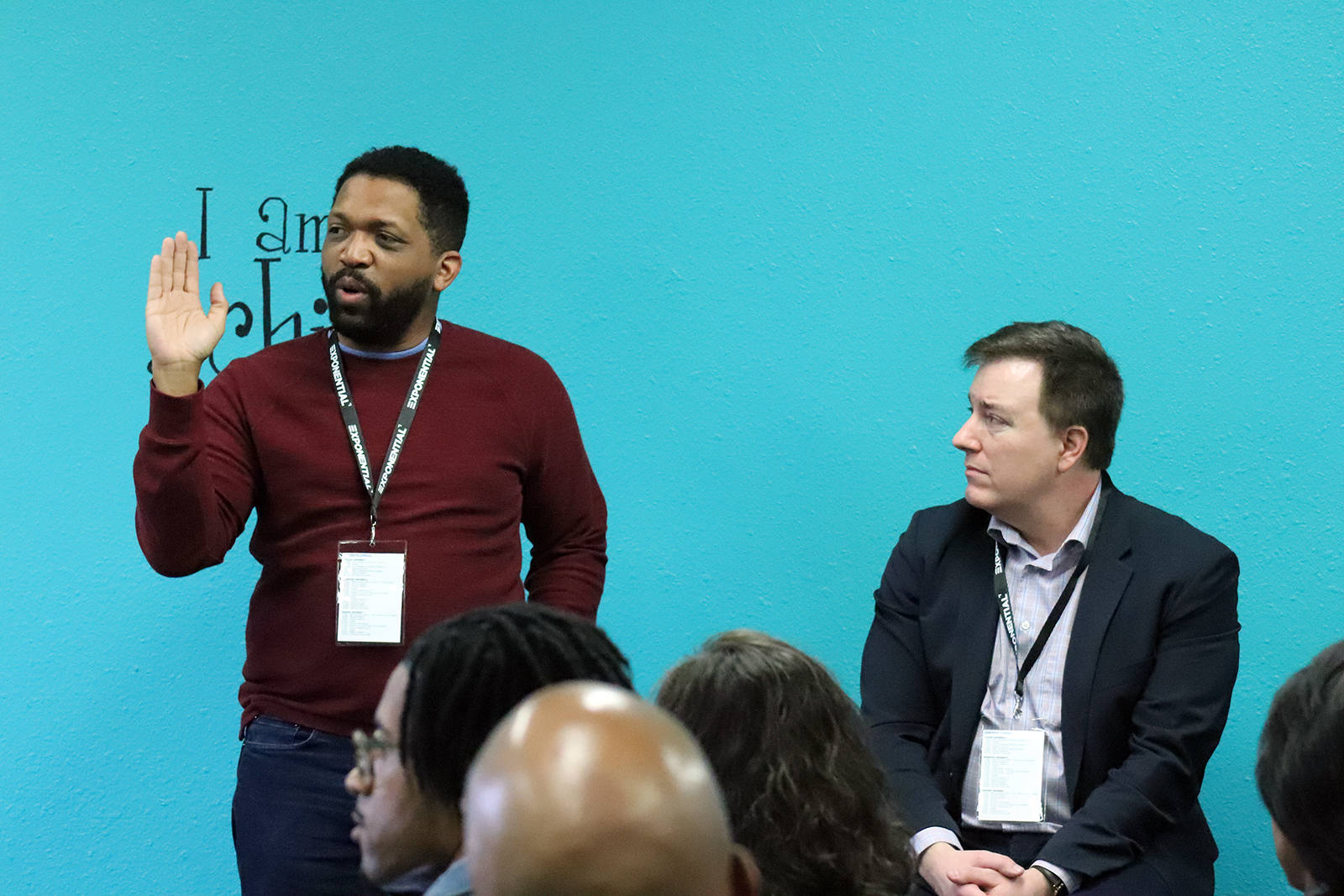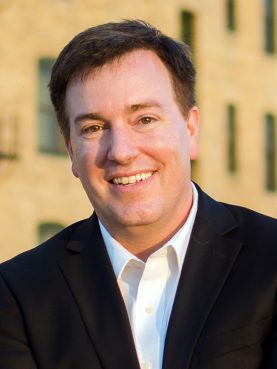
Glenn Bracey, left, and Michael Emerson present during Mosaix Global Network’s Multiethnic Church Conference on Nov. 6, 2019, in Keller, Texas. RNS photo by Adelle M. Banks
“It is very theological at the core — but a different faith that prioritizes very different things,” he said. “It prioritizes being OK with privilege, prioritizes racial tribe power and position and individualism — a lot of things that just wouldn’t jibe with the traditional interpretation of the biblical text.”
Recently Emerson presented data from a forthcoming book he is writing with colleague Glenn Bracey, “The Grand Betrayal: The Agonizing Story of Religion, Race, and Rejection in American Life.” The co-authors looked at data on what they call “practicing Christians” — Americans who say they are Christian, say their faith is very important to them and attend church at least monthly. They found wide disparities in how Christians from different racial groups view race relations in the United States.
In the summer of 2019, researchers asked Americans if they thought the country had a race problem. Three-quarters (78%) of practicing Black Christians said yes, compared with just over a third (38%) of white practicing Christians. A year later, in late summer 2020, researchers asked the same question and found an even starker divide, with 87% of practicing Black Christians agreeing, compared with 30% of practicing white Christians.

Michael Emerson. Courtesy photo
When asked if Americans of color are treated less fairly on a range of issues — hiring, pay, promotions, housing, mortgages and the criminal justice system — the majority of Americans of color, whether of Asian, Hispanic or Black heritage, agreed, as did half of non-Christian Americans.
“One group stands alone: white practicing Christians, where about two-thirds disagreed,” according to a presentation Emerson gave to a gathering of Protestant pastors in January.
He said white Christians who reject stories of the country’s racial divides are intentionally ignoring the world around them.
“It isn’t a lack of understanding so much as it’s what we call the epistemology of ignorance— willful lack of understanding,” he said. “It’s an investment to not understand, that I will not hear what others are saying, because it doesn’t benefit the way I interpret the world.”
Not all evangelicals are comfortable with that willful ignorance, and some are concerned that the full-throated rejection of wokeness is becoming a conversation within evangelicalism that will eventually divide the conservative church.
Erik Reed, pastor of The Journey Church in Lebanon, Tennessee, said he first began reading about CRT as a graduate student at Vanderbilt Divinity School, where he attended before finishing his degree at a Southern Baptist seminary.
Reed said systemic racism is a real problem in society, something his belief in the Calvinist doctrine of “total depravity” — the idea that humans are inherently corrupted by sin — helps explain. “I believe we’re capable of terrible things,” he said. “It’s silly to deny atrocities, it’s silly to deny oppression when you believe man is sinful and capable of awful things.”
Reed said the conversations he once heard at Vanderbilt, known for having a more progressive view of theology, are now taking place among evangelicals. He believes unjust systems need to be fixed. But he also sees the divides in American culture as rooted in sin, something a social theory can’t undo.
He said that online debates about CRT and “wokeness” reflect what’s going on in church pews and that those debates aren’t going away.
“I am finding there are a lot of people who profess the same core convictions but they seem to be heading in very divergent directions,” he said.
This article originally appeared here.

